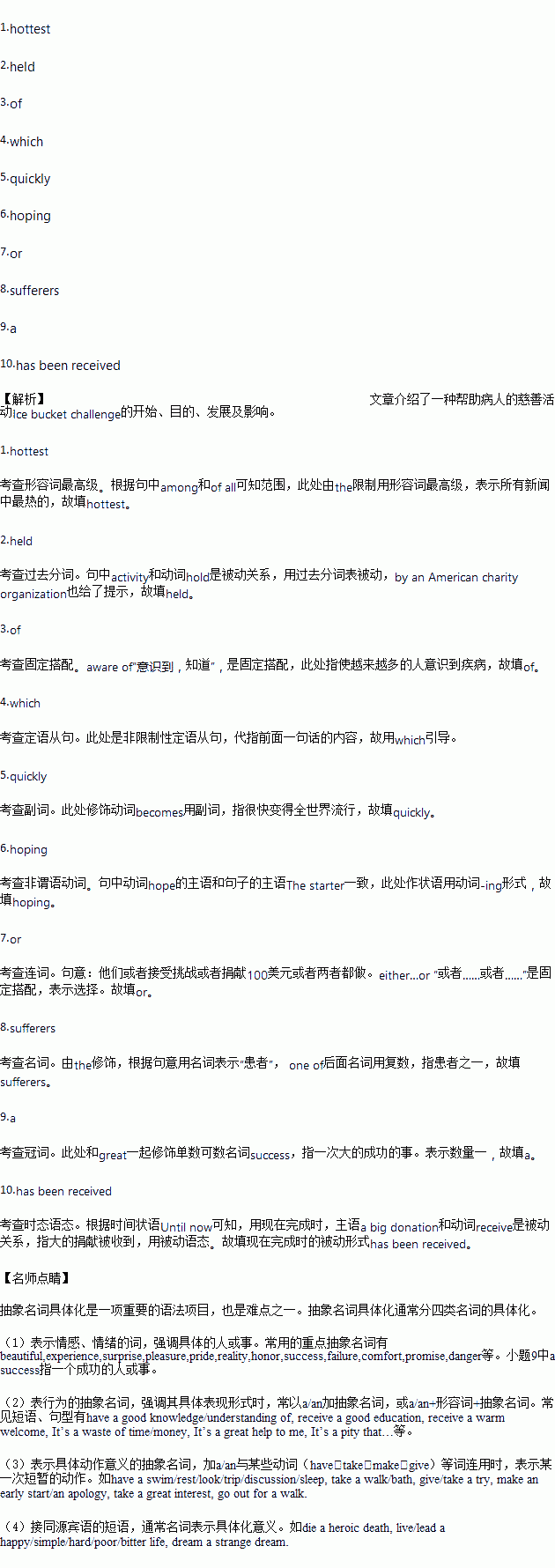题目内容
Nowadays, the ice bucket challenge is among the1.(hot) news of all. It is an activity2. (hold) by an American charity organization. It not only helps the sick people to get the money to heal their disease, but also makes more and more people aware3.the disease, so that they can give more care to the patients.
Ice bucket challenge is like the epidemic(流行病), 4.becomes popular around the world very 5. (quick). The starter holds the activity, 6.(hope) people can experience the ALS patients’ pain. In the activity, people need to pour the ice water down from their heads, and then propose three people. They can either choose to accept the challenge7. donate 100 dollars, or do the both.
The ALS makes people’s muscles become hard. It is hard for the patients to move. Stephen Hocking is one of the8.(suffer). Ice bucket challenge is9.great success. Until now, a big donation10.(receive).
 学而优衔接教材南京大学出版社系列答案
学而优衔接教材南京大学出版社系列答案 小学课堂作业系列答案
小学课堂作业系列答案
